Increase Economic Value ITS Socializes the Latest Hydroponic Methods
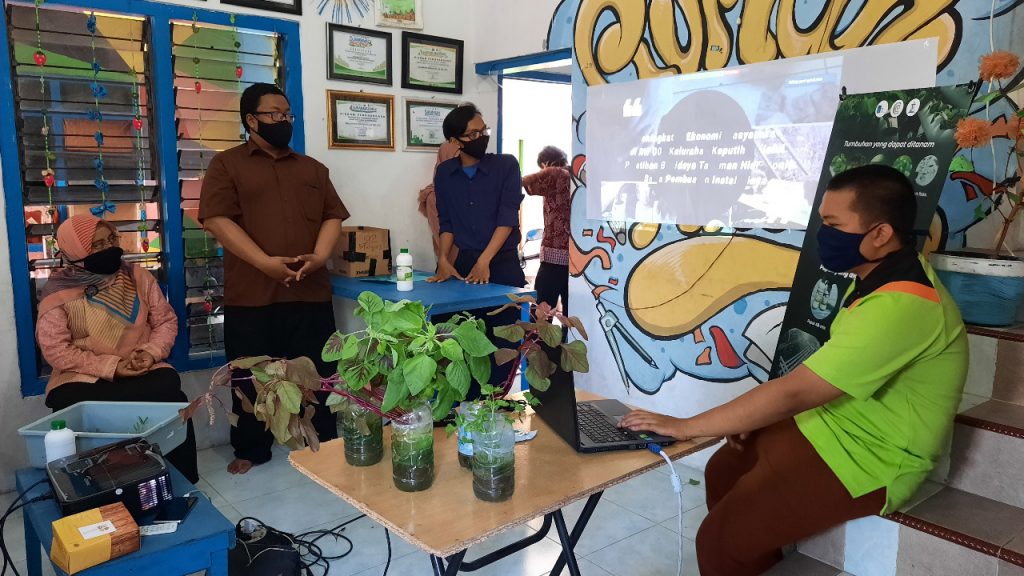 The atmosphere of Hydroponic Plant Cultivation training for residents of RW 008 Keputih Village, Surabaya by Abmas Team and ITS KKN
The atmosphere of Hydroponic Plant Cultivation training for residents of RW 008 Keputih Village, Surabaya by Abmas Team and ITS KKN
ITS Campus, ITS News – Pandemic conditions that have an impact on the food sector, especially the price of vegetables, are of particular concern to the academics of Institut Teknologi Sepuluh Nopember (ITS). Answering this problem, the ITS Community Service (Abmas) and Community Service Program (KKN) team conducted research related to the most effective hydroponic methods to distribute to the surrounding community.
For a month, Prof. Dr. Fahimah Martak MSi, together with the team, conducted a series of studies including the manufacture of hydroponic installations, the nursery process, the manufacture of liquid fertilizers, and planting variations with different parameters. “That is the light factor against seedbed conditions, the use of the media for seedlings, raw water factors into liquid fertilizer and growing media factor,” said the professor of the Department of Chemistry, Faculty of Science and Analytical Data ITS.
Not only doing research, continued Fahimah, also innovated seedling media using aquarium filter cotton. The decision has been made because it was felt that it would be more economical than using a seedling medium in the form of Rockwool. “This filter cotton has high water aeration ability and is more resistant to mold,” he said.
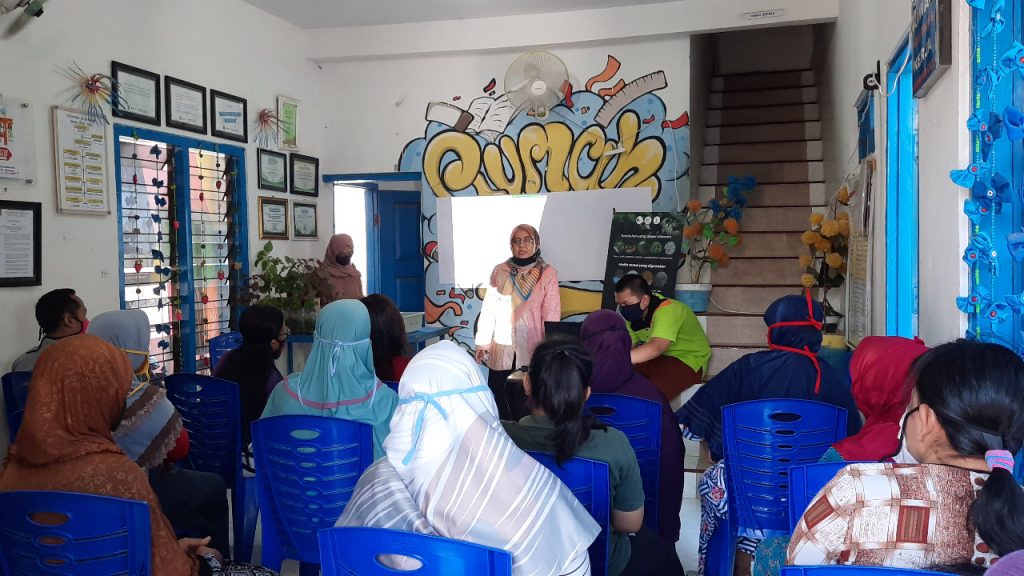 Prof. Dr. Fahimah Martak MSi (standing in the middle) when explaining hydroponics to residents
Prof. Dr. Fahimah Martak MSi (standing in the middle) when explaining hydroponics to residents
Besides, liquid fertilizer for hydroponics did not forget the spotlight Fahimah and his team. He tried to innovate using domestically produced NPK fertilizer that turned out to have good content for hydroponics. Domestic fertilizers can compete with the quality of AB-Mix fertilizers that tend to be more expensive. “Domestic fertilizer is still in the form of solids, it needs to be crushed first so that it dissolves more easily,” he added.
All of the research, Fahimah continued, was intended to find the best hydroponic method so that it could be applied to the community. For this reason, the team has also held training for residents. Training related to the hydroponic method is to explore knowledge about hydroponics. Includes farming methods, hydroponic benefits, and plants that are suitable for hydroponics. “This time we are targeting residents of RW 008 Keputih, Surabaya,” he said.
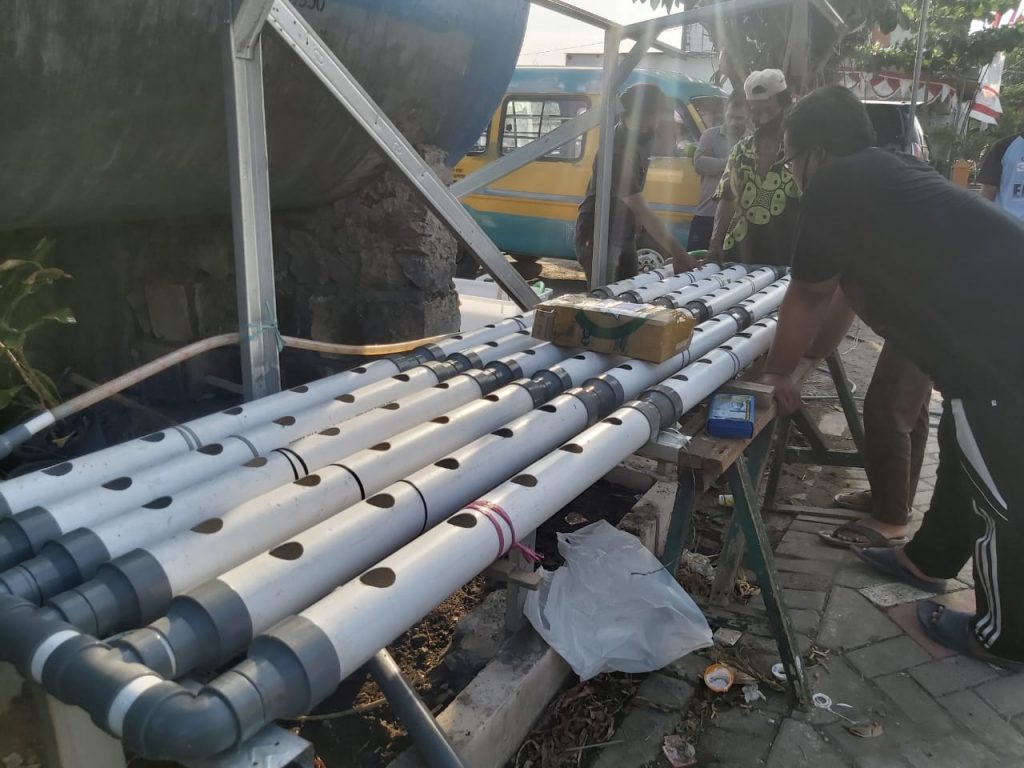 Hydroponic pipe installation process
Hydroponic pipe installation process
In the training, several hydroponic systems were introduced, namely the Deep Flow Technique (DFT) system and the wick system using used bottles. “The DFT system that uses pipes has better results because of the continuous circulation of oxygen and nutrients,” said Fahimah.
After the training, hydroponic pipe installations were also distributed to each Neighbourhood present and hydroponic packages in the form of seed media, liquid fertilizer, TDS meters, various hydroponic plant seeds, to flannel. “This package is provided to support the hydroponic activities of the residents,” Fahimah explained.
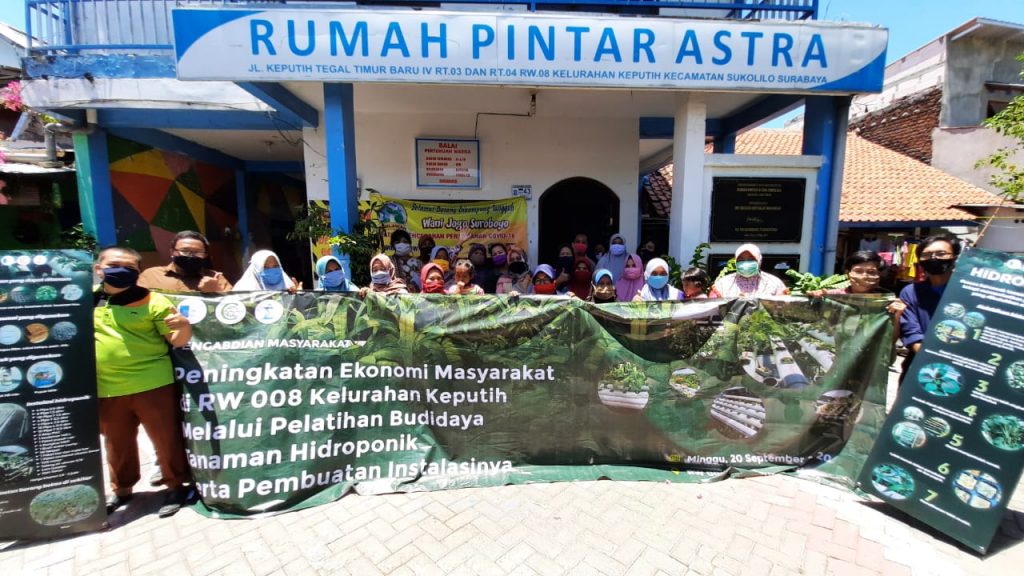 ITS Abmas Team for Hydroponic Training with residents of RW 008 Keputih, Surabaya
ITS Abmas Team for Hydroponic Training with residents of RW 008 Keputih, Surabaya
A team headed by Drs. Agus Wahyudi MSi hoped that this hydroponic cultivation method may continue, thus increasing the value of the RW 008 Keputih village in Surabaya Smart City program organized by the government of Surabaya. “We wish to create independent citizens in hydroponics as well as the expected results can be used for every day kitchen needs or marketed to improve the people’s economy,” he said. (AI/ITS Public Relations)
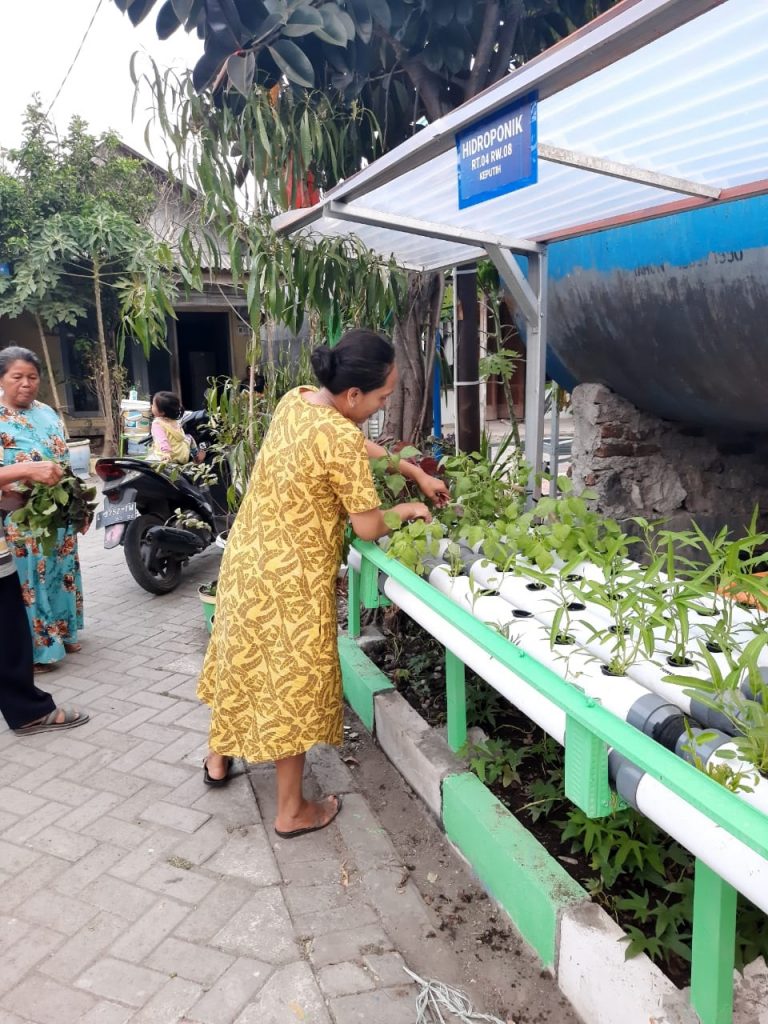
The process of harvesting hydroponic vegetables with residents of RW 008 Keputih, Surabaya
Related News
-
ITS Collaboration with BPBD East Java, Launching VR Disaster Simulation
ITS Campus, ITS News — Supporting anticipation of disasters and continuing to educate the public, Institut Teknologi Sepuluh Nopember
February 18, 2021 15:02 -
Supporting the Implementation of Innovative Ideas, ITS and IYSA Hold International Competition
ITS Campus, ITS News — Institut Teknologi Sepuluh Nopember (ITS) has once again proven its commitment to supporting the
February 18, 2021 15:02 -
ITS Maintains Informative Qualification for Five Consecutive Years at KIP Awards
ITS Campus, ITS News — Institut Teknologi Sepuluh Nopember (ITS) has once again successfully maintained its Informative Qualification predicate
February 18, 2021 15:02 -
ITS Strengthens Smart Eco-Campus through UI GreenMetric 2024
ITS Campus, ITS News — Institut Teknologi Sepuluh Nopember (ITS) has once again demonstrated its commitment to environmental concern
February 18, 2021 15:02
